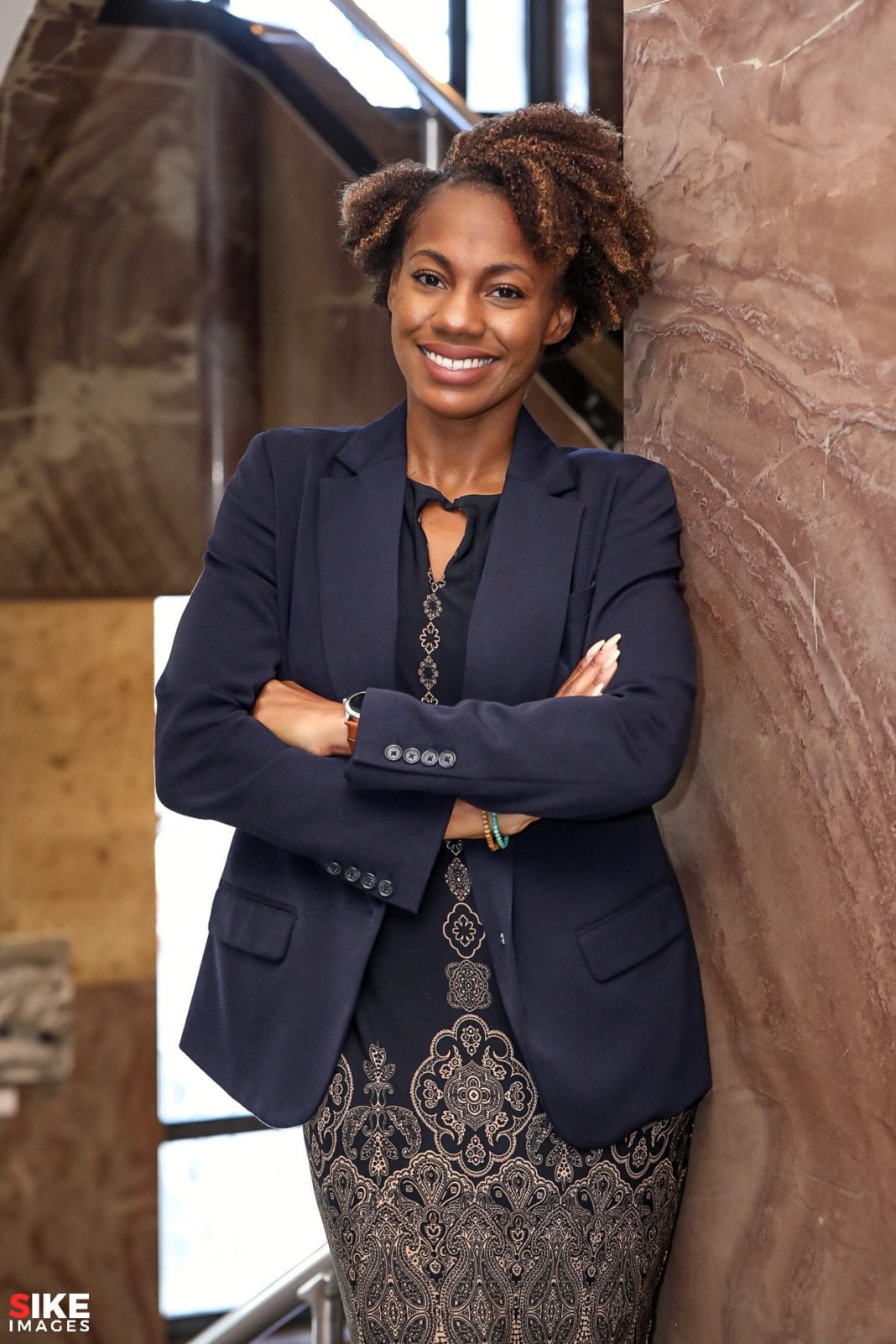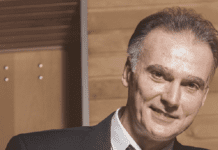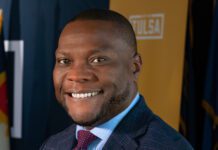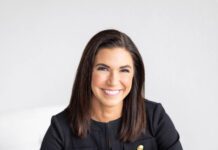Executive director of Progress OKC, Maurianna Adams, has a decade of professional experience in public service, including the directorship of the Tulsa Community Foundation. Progress OKC, of which Adams took the helm last August, is a nonprofit devoted to community development. The Putnam City West High School graduate has a bachelor’s degree from the University of Oklahoma and a master’s degree from the University of Central Oklahoma. We caught up with Adams and got her thoughts on …
… growing up in and around OKC.
A village raised me. That experience has been valuable in my career because I witnessed this city from diverse vantage points – areas of spurring growth, segments of opportunities, communities that have less access to sufficient resources.
… public service’s importance.
For several years, my grandfather was a social worker who helped youth experiencing homelessness. He later went on to become a teacher. His mother and relatives would always open their doors to individuals in need of food, shelter, understanding and dignity. The exposure of community service and neighbors helping neighbors inspired me at a young age to not hesitate but take action when it comes to giving. Throughout my career, I have [seen] how systems work and how to influence change that multiplies and positively affects the multitude. Public service is a passageway to shape the world – even if your world is defined by a neighborhood – through education, arts and culture, research, direct service, policy and advocacy.
… disinvestment and investment.
Disinvestment in a community can yield both immediate and long-term consequences. For example, the state of wealth today for many households in the United States can be traced back generations to public investments in housing, the workforce and education. Historically, there have been disparities as it pertains to economic opportunity; the gravity of disparities expands along the lines of race and gender. Today, many dual-earner households struggle to make ends meet or to get ahead, and often the broader neighborhood mirrors this hardship; thus, intergenerational poverty persists. There are downstream outcomes that affect everyone.
By reversing the cycle of disinvestment, we address economic inequality and improve existing physical, social and institutional structures for individuals and families. We also create opportunities for people to own assets, such as land, a home and a business, through education, service, development or capital, which benefits the community and its economy.
… energizing youth.
I often speak to young people about career planning, higher education and public service to ensure … a pipeline of energized change agents, who are fully supported and connected. Our time exposes our priorities; time is the best investment we have. By investing time to volunteer – mentorship, membership associations, internships, professional learning communities – you produce a return. I discuss fulfilling public service objectives in both the private and public sectors. There are many pathways … that give back to communities; this is not exclusive to nonprofit jobs. Often, partnership between for-profit entities and community-based organizations lead to sustainable impact. I also encourage them to think outside of the box and bring creativity to the table. We need people who can identify problems and solutions, but who can also implement ideas in unimaginable ways. Never stop being curious, never stop being engaged, because something or someone is waiting on your gift.


























